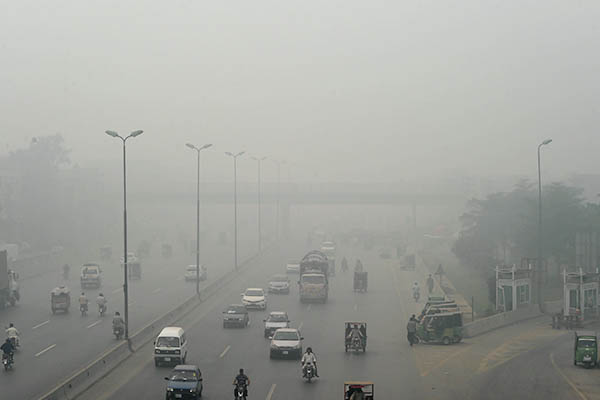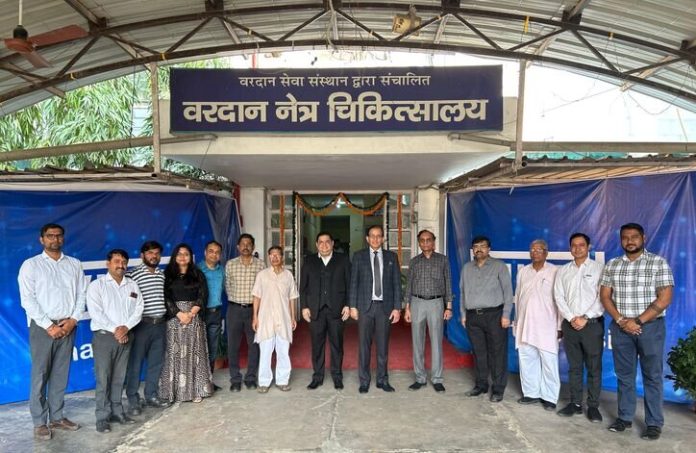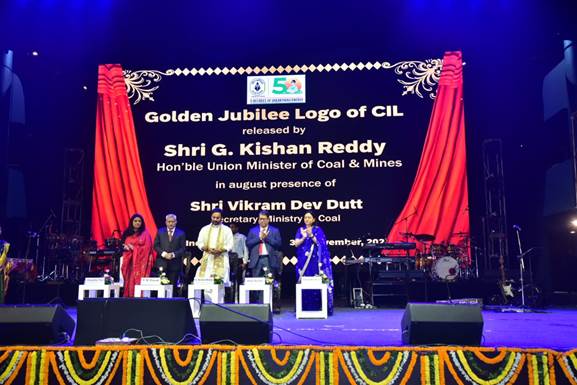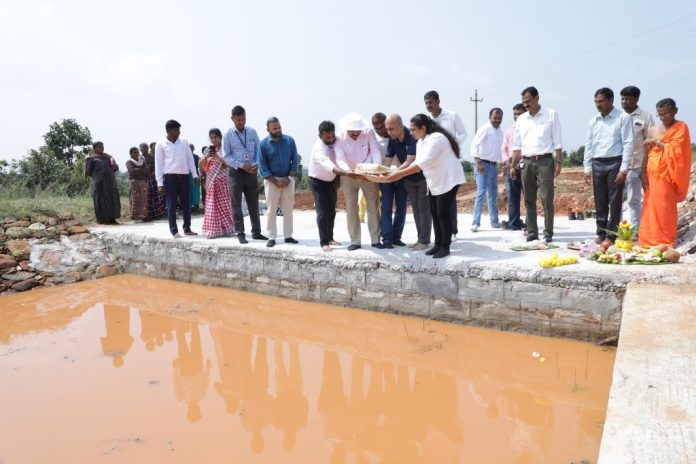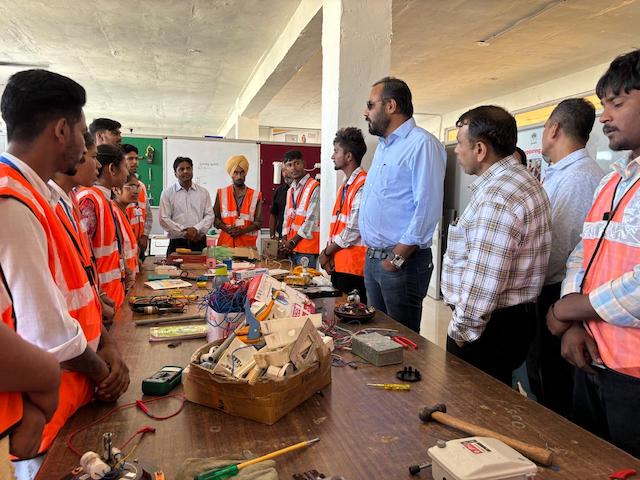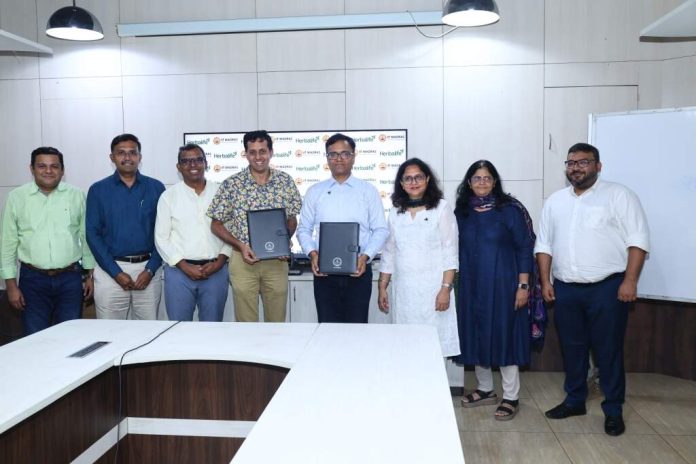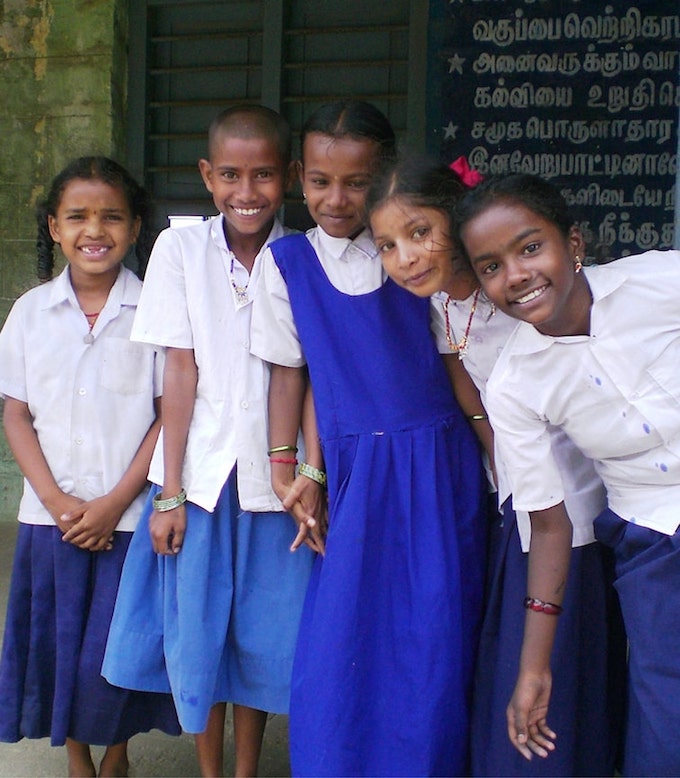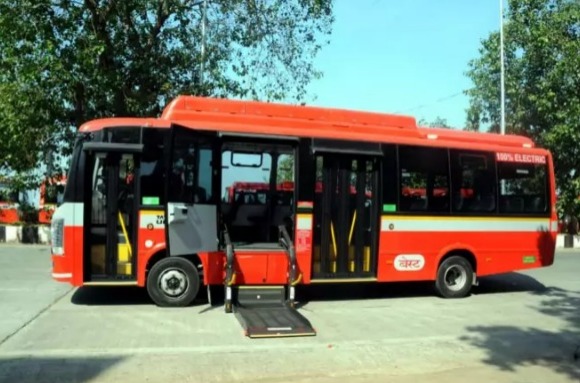Dell Laptops Secures First Spot for Fourth Year in TRA’s Most Desired Brands Report 2024, Apple iPhone Stands Second, Titan Third
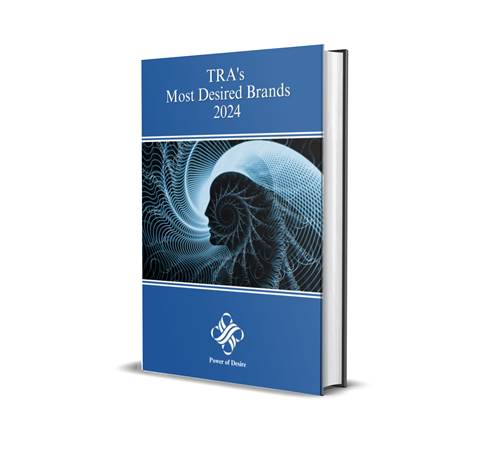
In an impressive display Dell Laptops has claimed the title of the #1 Most Desired Brand of 2024 for an impressive fourth consecutive year, as revealed in the latest TRA’s Brand Desire Report. TRA’s annual rankings, based on in-depth interviews with more than 2,500 consumer influencers across 16 cities, provide a comprehensive view of the shifting desires and loyalties that define the Indian consumer landscape. This is the 10th edition of the report.
“In the ever-evolving landscape of consumer preferences, adaptability is paramount. At TRA Research, we recognize the subtle shifts in aspirations and desires that continuously reshape the market. The Most Desired Brands Report is our endeavour to capture these dynamic trends with precision. Through meticulous analysis of consumer sentiment, we curate an extensive list of India’s top 1000 most desired brands, a reflection of today’s consumer pulse. This report not only highlights current market attitude but also serves as a valuable guide for businesses, enabling them to craft products and experiences that align deeply with consumer expectations,” stated N. Chandramouli, CEO, TRA Research.
In the top 5 Most Desired Brands of 2024, Dell Laptops led the list of 1000 brands, followed closely by Apple iPhone, which rose three ranks to secure the #2 position. Titan Watches was ranked #3, while Sony Televisions with a notable leap to #4, from its previous rank of 11. LIC continued its rise within the BFSI category, moving up eight positions to #5. The year’s ranking also saw automobile brands Honda Motorcycles jumped thirty-two ranks, and Maruti Suzuki made significant progress, climbing twenty-six ranks each to break into the top 10, showcasing robust consumer appeal for trusted, established auto manufacturers.
Overall, FMCG dominated as the top super-category with 155 brands represented, followed by Food & Beverage with 119 brands, Automobile with 106 brands, and Personal Accessories with 72 brands. Together, these super-categories accounted for over half (52.3%) of the entire list, underscoring the widespread and deep-rooted appeal of these essential sectors. The report also noted the debut of over 341 new brands among the top 1000, highlighting the fluid nature of Indian consumer preferences and the intensifying competition for their attention. Tata Safari was the only new brand that made it into the top 100.
The categories showing the highest consumer interest featuring the highest number of brands featuring in the report were Air Conditioners (19), Mobile Phones (18), Televisions (17), SUV – Brand (15), Four-Wheeler Manufacturer (13), Motorcycle Brand-Light (13) and Skincare (13). These seven categories totalled 108 brands, a little more than 10% of the 1000 brands listed in the report showing the categories with highest competition.
Among the then largest rank advancements are, Philips – Food Processor (+687 ranks), Bella Vita – Deo/Perfume (+680 ranks), Arun – Ice Creams (+677 ranks), Tissot – Premium Watches (+674 ranks), Renault – Four-Wheeler Manufacturer (+661 ranks), Tesla – Electric Car (+653 ranks), Aaj Tak – Hindi News (+604 ranks) and Mac – Premium Cosmetics (+603 ranks).
The ten biggest rank falls are, Reliance Mall (-731 ranks), Dabur Red – Ayurvedic Toothpaste (-687 ranks), Patanjali Pachak Hing Goli – Ayurvedic Digestive (-674 ranks), Godrej – Diversified Consumer Electronics (-659 ranks), Kotak Mahindra – Mutual Funds (-618 ranks), Dabur Real – Packaged Fruit Juice (-595 ranks), Pediasure – Kids’ Nutritional Supplement (-569 ranks), Britannia – Bread (-561 ranks), Dr. Ortho – Ayurvedic Pain Relief Oil (-537 ranks), and Colgate – Toothbrushes (-527 ranks).
Disclaimer: This media release is auto-generated. The CSR Journal is not responsible for the content.
CSR: Solar Panels Donated to Vardan Eye Multispeciality Hospital
Vardan Eye Multispecialty Hospital, an eye care facility by Vardan Sewa Sansthan, in Ghaziabad, has received a 45kW solar panel system donation by WIKA India. The panel was inaugurated today by Mr. Gaurav Bawa, Senior Vice President, WIKA India and Mr. Umang Gupta, Head of Operations, WIKA Ghaziabad in the presence of Shri Krishanveer Singh Sirohi, President of Vardan Sewa Sansthan, and Shri Vijay Shankar, Secretary. The donation displays WIKA India’s commitment to a healthier society.
The initiative aligns perfectly with WIKA India's core values of environmental responsibility and CSR efforts. This would help provide the hospital with a clean and renewable source of energy while also cutting down their operational costs and dependency on the traditional energy sources.
“WIKA India is pleased to offer its support to Vardan Sewa Sansthan with the solar panel system. With an aim to develop a society which is more sustainable and efficient, we aim to ensure that the healthcare facilities like these are easily accessible to all,” said Mr. Gaurav Bawa, Senior Vice President, WIKA India Expressing his gratitude, Shri Krishanveer Singh Sirohi, President of Vardan Sewa Sansthan: “We are
immensely thankful to WIKA India for their generous contribution. The implementation of solar panel system will allow us to utilise our resources more to patient care instead of dealing with operational costs.”
WIKA India strongly believes in building a sustainable environment and this is yet another example of it.
Disclaimer: This media release is auto-generated. The CSR Journal is not responsible for the content.
Coal India Limited commemorates 50th Foundation Day, Golden Jubilee Logo and Mascot launched
Kolkata, India: Coal India Limited (CIL), under the Ministry of Coal, marked its 50th Foundation Day yesterday at the CIL Headquarters in Kolkata. The celebration was graced by Union Minister of Coal and Mines, G. Kishan Reddy, as the chief guest, along with Vikram Dev Dutt, Secretary of the Ministry of Coal, as the guest of honour. This significant event not only celebrated CIL’s remarkable contributions to the nation’s energy sector over the past five decades but also laid the groundwork for its future initiatives and strategic direction.
On this momentous occasion, Union Minister G Kishan Reddy, launched the Golden Jubilee logo and unveiled the mascot “Angara.” The logo symbolizes CIL’s pivotal role as the backbone of India’s energy sector, reflecting the company’s commitment to innovation, progress, and sustainability. The mascot embodies the strength and resilience of coal miners, highlighting their courage and dedication. The Mascot is inspired by Royal Bengal Tiger.
During his address, G. Kishan Reddy extended heartfelt congratulations to the officers, staff, and workers of Coal India Limited (CIL) for reaching the milestone of 50 years of operation and stressed that increasing coal production and enhancing supplies to reduce imports should be CIL’s foremost priorities. He underscored the importance of miners’ welfare and the rehabilitation of communities affected by mine closures. “Contractual workers play a significant role in Coal India’s output, and I applaud the management’s decision to implement Performance Linked Incentives for them, effective FY 2023-24,” he stated.
The Minister pointed out that under the visionary leadership of Prime Minister Narendra Modi, the Coal Mines Special Provision (CMSP) Act was enacted in 2015 to augment coal production through transparent allocation of coal mines via auction. This initiative has been pivotal in ensuring coal availability for sectors such as steel, cement, and power utilities. He further stated that the launch of commercial coal mining in 2020 ushered in transparency, ease of doing business, and investment opportunities, helping to open the coal sector. Expressing confidence in CIL, he stated that the company has the competency and commitment to compete in the current open market scenario.
Mr Reddy reiterated that while coal will remain a central component of India’s energy landscape for the coming decades, the nation is also heavily investing in renewable energy and addressing climate change. He commended CIL’s diversification efforts, including the setting up of a thermal power plant and foraying into critical mineral acquisition. In the Viksit Bharat initiative, Coal India has a vital l role to play and it needs to shoulder this responsibility.
Addressing the event, Secretary of Coal, Vikram Dev Dutt highlighted that CIL provides coal to Indian consumers at competitive rates compared to imported coal. He added that coal stocks at power plants reached 31.6 MT as on October 28, 2024, as compared to 18.8 MTs of corresponding period of last year with a growth of 68%, largely attributed to the contribution of CIL. Coal Secretary also said, Coal India should recalibrate its processes, operational and cost efficiency in accordance to the changing business dynamics.
Kishan Reddy also released the Strategy Report on Coal and Lignite Exploration, inaugurated the Mine Closure Portal, and announced the development of a 50 MW solar power plant at the Nigahi project of Northern Coalfields Limited, involving an investment of ₹250 crores. This solar initiative is expected to generate 49 million units of electricity. The Minister concluded the ceremony by presenting awards to outstanding performers in both institutional and individual categories, recognizing their significant contributions to CIL’s success.
As Coal India Limited celebrates this significant milestone, the organization reaffirms its commitment to driving sustainable growth and energy security for the nation. Looking ahead, CIL is poised to embrace new challenges and opportunities while continuing to uphold its legacy as a cornerstone of India’s energy sector.
Disclaimer: This media release is auto-generated. The CSR Journal is not responsible for the content.
Going Net Zero: Cairn Oil & Gas signs MoU with UNEP’s Oil & Gas Methane Partnership 2.0
Gurugram, India: Cairn Oil & Gas, part of Vedanta Group and India’s leading private oil and gas exploration and production company, has signed a Memorandum of Understanding (MoU) with United Nations Environment Programme’s (UNEP) flagship methane reporting and mitigation initiative – Oil & Gas Methane Partnership (OGMP) 2.0, making it the first Oil & Gas producer in India to commit to effective reduction of methane emissions, further accelerating its efforts to decarbonise its operations.
OGMP 2.0 established a comprehensive framework that includes best practices for emissions management and a robust reporting system. It emphasises accurate measurement, reporting, and verification (MRV) of methane emissions to drive reductions effectively.
Under this MoU, Cairn will establish a 5-year methane reduction target and transparently report its progress to OGMP. This would enable Cairn to analyse its emission profiles and utilise the data to mitigate emissions cost-effectively. With this partnership, Cairn reaffirms its commitment to accelerate its efforts towards becoming Net Zero Carbon by 2030.
OGMP 2.0 covers over 40% of global oil and gas production empowering companies to improve the quality and accuracy of emissions data for effective methane reduction.
Welcoming Cairn to this partnership, Giulia Ferrini, OGMP 2.0 Programme Manager, said “We are thrilled to welcome our first member from India and hope that Cairn’s commitment will inspire other companies from the country to join OGMP 2.0 and contribute to improving methane emissions reporting and management practices in the oil and gas sector”.
OMGP 2.0 provides companies with credible means and science-backed framework to establish that they are progressing towards methane reduction targets, supporting the goals of the Paris Agreement and the Global Methane Pledge—a commitment by over 150 countries to reduce global methane emissions by 30% by 2030. By joining OGMP 2.0, Cairn has set a new benchmark in India’s oil and gas industry for methane transparency and actively contributing to the nation’s environmental objectives. This membership brings the first upstream oil and gas company in India into the initiative, doubling OGMP 2.0 coverage close to one-fourth of Indian oil and gas production.
Commenting on this partnership, Hitesh Vaid, Chief Financial Officer, Cairn Oil & Gas, Vedanta Ltd. said, “We are excited to join UNEP’s OGMP 2.0 to set and achieve our methane reduction targets. Setting new benchmarks in sustainable energy production, Cairn has become the first oil and gas company in India to adopt this programme. Our multi-faceted ESG strategy—spanning renewable energy integration, carbon capture utilisation and storage (CCUS), waste-to-energy projects adopting low carbon technologies, and extensive nature-based carbon solutions—highlights the extent of our dedication towards both environment and India’s energy security. With OGMP 2.0 membership, we aim to not only reduce methane emissions and become Net Zero by 2030, but also drive a broader industry transformation towards responsible and sustainable energy practices.”
Earlier this year, Cairn had announced the fast-tracking of its net zero commitments to 2030. Cairn is committed to enhancing its operational performance in synergy with climate change mitigation and further plans to minimise emissions through process optimisation, improved reliability, and low-carbon technologies. Cairn has successfully reduced potential gas flaring volume by 60% over the last four years. The multi-pronged long-term strategy to become Net Zero Carbon by 2030 is backed by a meticulous plan exploring new opportunities.
Oil and Gas Methane Partnership 2.0 (OGMP 2.0)
The Oil & Gas Methane Partnership 2.0 (OGMP 2.0) is the United Nations Environment Programme’s flagship oil and gas reporting and mitigation programme. OGMP 2.0 is the only comprehensive, measurement-based reporting framework for the oil and gas industry that improves the accuracy and transparency of methane emissions reporting. This is key to prioritising methane mitigation actions in the sector. If you can’t measure it, you can’t fix it. This comprehensiveness allows us to track and compare progress and performance across companies. OGMP 2.0’s data is one of the key components of UNEP’s International Methane Emissions Observatory’s solution to the methane data problem. IMEO is an initiative that drives action on methane reduction.
Disclaimer: This media release is auto-generated. The CSR Journal is not responsible for the content.
CSR Initiative to Revitalize Doddasaggere Botanical Garden through Water Conservation
LM Wind Power (India) Pvt. Ltd., in partnership with United Way Bengaluru (UWBe), successfully inaugurated two water bodies in the Doddasaggere Botanical Garden, marking a major milestone in sustainable water conservation and ecosystem restoration. The ceremony, graced by leaders from LM Wind Power, UWBe, and The Department of Horticulture, Karnataka, included a traditional Bagina ritual to celebrate the filling of the ponds and the positive impact the project will have on the botanical garden.
Spanning 228 acres, Doddasaggere Botanical Garden is part of an ambitious project by the Karnataka Department of Horticulture to establish five botanical gardens in Karnataka, modelled after the iconic Lalbagh Botanical Garden in Bengaluru. This biodiversity hub, now home to diverse bird and reptile species and lakhs of trees and plants, previously relied heavily on borewells for its water needs. The creation of the new pond and the restoration of the existing one have made the garden self-sufficient, storing an impressive 4.5 crore Liters of rainwater to support year-round irrigation and biodiversity sustenance.
“Being part of this transformative project at Doddasaggere Botanical Garden is a meaningful step in our commitment to sustainability. Together with United Way Bengaluru and the Horticulture Department, we have created water resources that will nurture this green space for years to come. It’s rewarding to know that our collaboration is contributing to Karnataka’s environmental heritage, and we look forward to more such initiatives that make a lasting difference for both nature and the community “said Rajesh Lobo, Executive – Senior Plant Director, LM Wind Power
“We extend our heartfelt gratitude to LM Wind Power and United Way Bengaluru for their remarkable dedication in restoring waterbodies at Doddasaggere Botanical Garden. Their partnership has revitalized essential water resources and aligns with our mission to develop sustainable green spaces that support biodiversity. This project exemplifies the power of public-private collaboration in advancing environmental conservation, and we are eager to see more such initiatives that contribute lasting benefits to Karnataka’s ecological heritage.” – Said Dr. M. Jagadesh, Joint Director, Horticulture Department, Lalbagh Botanical Garden, Bengaluru
“Our enduring partnership with LM Wind Power and the Horticulture Department has empowered us to develop impactful, sustainable solutions for local communities. The successful restoration of ponds at Doddasaggere Botanical Garden showcases the incredible results we can achieve through collaboration. We are thrilled to see our shared vision materialize and are eager to continue our journey together, embarking on many more initiatives that benefit both the environment and the communities we serve” said Rajesh Krishan, CEO, United Way of Bengaluru.
Disclaimer: This media release is auto-generated. The CSR Journal is not responsible for the content.
CSR: SEDI Centre Relocated to Bathinda from Goniana to help upskill more local youth
Ambuja Cements, the cement and building material company of the diversified Adani Portfolio, proudly announces the move of its Skill & Entrepreneurship Development Institute (SEDI) Centre from Goniana to Bathinda. This state-of-the-art facility expands its overall outreach to 100 villages, significantly increasing access to skill development and entrepreneurial opportunities for rural communities. This SEDI Centre was previously located at Goniana and has been relocated near the bus stand in Bathinda to cater to a wider youth audience through easier access.
The inauguration of this new SEDI Centre witnessed the launch of two vocational batches: Assistant Electrician and Microfinance Executive, providing vital skills to local youth to improve their employability and economic standing, with plans to also introduce the Assistant Beauty Therapist course.
The event highlighted the commendable efforts of the SEDI team in transforming lives through sustainable skill-building initiatives. Trainees were encouraged to seize these opportunities, which promise brighter futures and enhanced employability for the local community.
Ambuja Cements’ commitment to empowering rural communities, creating a lasting socio-economic impact, and contributing to nation building through the empowerment of youth is highlighted through these efforts.
Disclaimer: This media release is auto-generated. The CSR Journal is not responsible for the content.
IIT Madras launches 1,000 Data Science Scholarships with CSR support for underprivileged students
Chennai, India: Herbalife, a premier health and wellness company, community and platform entered into a Memorandum of Understanding (MoU) with the Indian Institute of Technology (IIT) Madras to provide 1,000 scholarships for students pursuing the foundational level of the IITM BS Degree in Data Science and Applications. This initiative aligns with IIT Madras’s vision of “IIT Madras for All,” which strives to make high-quality education accessible to students from diverse economic backgrounds across India.
The MoU signing ceremony, held at IIT Madras, was attended by Shri Uday Prakash, VP – Strategy and Implementation, Herbalife India, along with Prof. Ashwin Mahalingam, Dean of Alumni and Corporate Relations IIT Madras, Mr. Kaviraj Nair, CEO of Alumni and Corporate Relations, and other IITM representing members.
The “Merit-cum-Means Scholarship for the IITM BS Degree in Data Science and Applications” not only aims to support underserved students but also ensures that 50% of the scholarships are reserved for female students. This commitment enhances the initiative’s dedication to promoting gender equality and encouraging female representation in Science, Technology, Engineering, and Mathematics (STEM) fields.
As part of its Corporate Social Responsibility (CSR) efforts, Herbalife India is dedicated to bridging educational gaps and providing transformative opportunities for individuals who have historically faced barriers to higher education. The flexible nature of this degree program allows students to pursue diplomas or degrees in Data Science and Programming, thereby unlocking pathways to employment, economic mobility, and personal growth.
Uday Prakash, VP of Strategy and Implementation, Herbalife India, said, “Education is a cornerstone of economic development and inclusivity in our country. Our collaboration with IIT Madras aims to equip economically disadvantaged students with essential skills and opportunities. This initiative not only empowers them to compete on a global stage alongside their peers but also encourages a more inclusive workforce by actively promoting female participation in technology, which is crucial for driving innovation and growth in the economy.”
Prof Ashwin Mahalingam, Dean – Alumni and Corporate Relations, IIT Madras said, “With over 11,000 students on campus, we at IIT Madras always strive to provide diverse, quality education to as many as possible, but we know that true reach requires collaboration beyond our walls. Our engagement with Corporates through Corporate Social Responsibility and philanthropy enables us to provide scholarships, bolster research, and expand our educational impact in ways that simply wouldn’t be possible otherwise. We’re incredibly grateful for Herbalife’s support in advancing these initiatives and driving meaningful change.”
The education market for data science in India is expected to surge from $299.75 million in 2023 to $2.04 billion by 2028, reflecting a CAGR of 46.77% as per a report by an Indian edtech platform. By providing access to in-demand skills through this program, Herbalife India and IIT Madras are poised to create significant opportunities for individuals and their families.
This collaboration represents a powerful model for educational advancement and community development in India—committed to accessibility, inclusivity, and empowerment for youth from underserved backgrounds. The scholarship recipients also benefit from career-focused mentorship and hands-on industry experience through internships, enhancing their professional prospects in this high-demand field.
Disclaimer: This media release is auto-generated. The CSR Journal is not responsible for the content.



